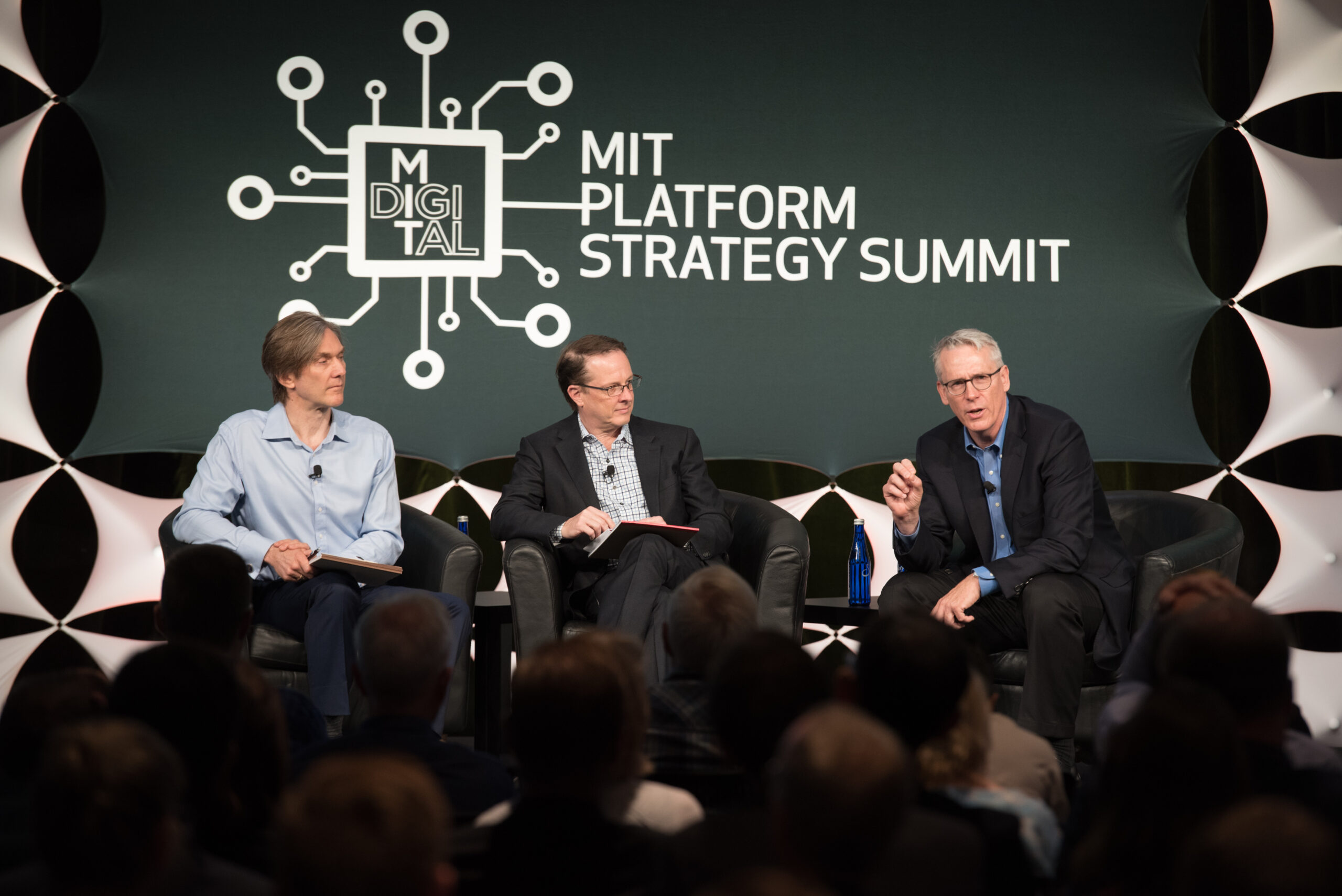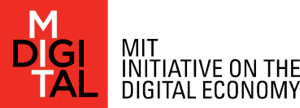
The 2019 Platform Strategy Summit, hosted by the MIT Initiative on the Digital Economy (IDE) at MIT’s Media Lab on July 12, was the seventh, and largest, conference yet, with more than 300 attendees — and with good reason. MIT IDE director, Erik Brynjolfsson, noted that “the five most valuable companies on planet Earth today are platform companies,” referring to Microsoft, Amazon, Facebook, Google, and Apple. He also said that it’s important to understand that it is not just these “behemoths of the digital economy” that are driving the platform revolution; “myriad startups and smaller companies are thriving as well,” thanks to network effects and platform ecosystems.
Event co-chairs Marshall Van Alstyne and Geoffrey Parker summed up the day’s event with key highlights and calls to action. It became clear that platforms are the business in so many cases, and there is huge optimism in what platforms and technology can do, especially with 5G and AI technology. There were also sober reminders that unchecked growth can harm market ecosystems, as well as society, which is why international regulatory and antitrust discussions are heating up. Clearly, we are navigating uncharted waters.
Barclays Breaks the Bank’s Model
Jes Staley, CEO of Barclays Bank, knows about the turmoil under way personally. In his 40-year career he said he hasn’t been “as concerned by what I don’t know about banking as I am today.” With new and nontraditional online competitors every day, the 328-year-old British banking giant had to transform, along with the financial services industry, despite its highly regulated constraints.
The bank, which recorded a 2018 revenue of $26 billion (U.S.), has pivoted the organization and is looking at “our scale and scope — including eight million customers plus merchants — as our biggest assets,” rather than as liabilities. For instance, it is using open APIs as a way to drive customers to its mobile app and to collect data for more personalized services.
As a result, Staley said the new “customer versus product focus completely changed how the organization is run.” Moreover, a “new dynamic of both partnering and competing with those in our ecosystem is helping us build our most effective platform.”.
Staley may be unusual in his resolve, however. During the event it was noted that, although incumbent organizations must undertake massive change to adapt to new digital and platform delivery models, fully 90% of Fortune 500 won’t disrupt themselves.
And time is running out. Leading Edge Partner, Lorrie Norrington, noted that we’re only “in the second inning of the game” when it comes to platforms, yet she drove home the need for more corporate boards to disrupt the business. Like Barclays, those that take the leap will reap the value.
Among other highlights:
- Many speakers — from Amazon to Albertsons — emphasized the importance of putting customer needs first, whether a B2C or a B2B platform, and staying with that focus relentlessly. AWS VP, Dirk Didascalou, said that experimentation leads to rapid innovation at Amazon. Don’t overthink reversible decisions, he advised.
- Elliot Schrage, VP at Facebook, underscored that governance is really tough. “If it were easy, it would be done.” Cultural and societal problems must be addressed that no single firm is going to tackle alone, he added.
- 5G technologies are going to move to the boundaries of what firms can do and how fast they can do it. Sensors and the IoT may be killer apps for this new generation of super-fast networks; 5G will bring “data on steroids” to many sectors.
- Today’s platforms don’t fit into traditional monopoly categories because of network effects. Drastic remedies, such as breaking up providers, would hurt ecosystems. Instead, several speakers recommended more competition and third-party participation to create links and spillovers that will have wider benefits.
- Don’t look backwards. Anchor your thinking to 2025.
For more on How Digital Platforms are Changing the Way We Do Business, read the University of Cambridge’s interview with Geoffrey Parker as a preview to his keynote address in September.
And read more on MIT Sloan here.
Also, watch for the full MIT IDE conference report, to be published shortly!
